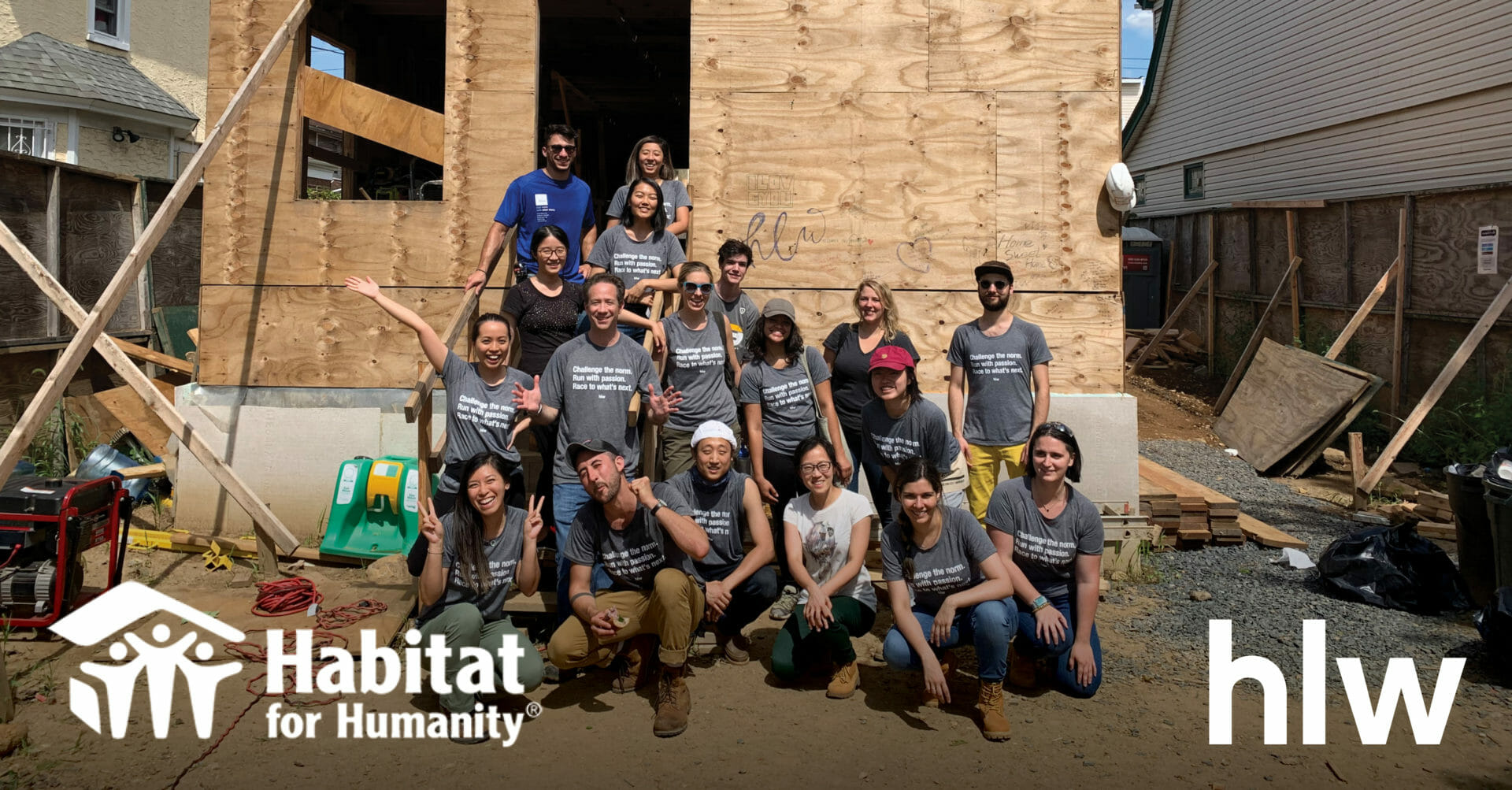Culture
HLW Participates in Habitat for Humanity


HLW recently volunteered with Habitat for Humanity, giving back to its community by helping hard-working families in New York City take a major step onto the path towards financial stability. The HLW team had more than 20 volunteers on the August 10th build who worked on bracing floor joists, erecting walls, and framing windows.
Partnering with Habitat for Humanity for the first time, HLW’s involvement will help to transform lives and the surrounding NYC community by building a quality, affordable home for a family in need. “I am truly humbled and honored to have been able to contribute to an organization that is helping deserving families improve their lives through home ownership,” says Tânia Posada Elyseu, an Architectural Job Captain at the firm. “I am equally proud to be a part of a firm that is willing to support causes like this one — philanthropy is such an important part of the HLW culture.”
Philanthropy is at the core of HLW’s mission to better the lives of people and their communities through architecture and design. The firm has several groups within their New York studio that champion different causes, all of which aim to engage team members to come together to serve a greater good. Led by Posada Elyseu, Balance is a group created to focus on wellness and wellbeing both inside and outside of the office. Their decision to partner with Habitat for Humanity was fueled by the opportunity to contribute to their community in an active way while also activating a greater appreciation for the construction of the built environment.
“Our contribution to Habitat for Humanity is part of a larger dedication to philanthropic and charitable initiatives,” says Ed Shim, Principal and Managing Director of the New York office.
Habitat for Humanity allows families the opportunity to build home equity and remain within their communities, building a stronger city. Habitat homeowners attain higher levels of education, more stable employment, and are more likely to be civically engaged within their communities.


